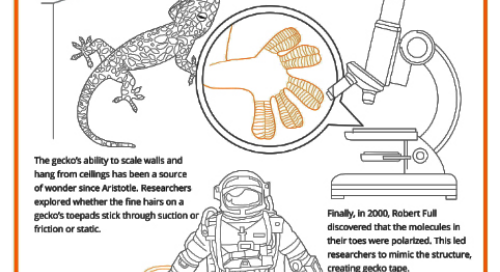clinical-outcome-assessments-helping-research-drive-real-world-impact
March 09, 2022
we know that our research has value. But what does that value look like in practice?
In the medical and pharmaceutical space, one way research delivers value is by providing a basis for evaluation in clinical trials.
Some research papers include rubrics or assessment frameworks – for example, an assessment framework for evaluating the severity of a patient’s eczema, or for identifying whether a patient is exhibiting signs of depression.
These assessment frameworks are a valuable starting point for future research. For example, a researcher who wants to test the effectiveness of a new medication for eczema can use validated, and peer-reviewed assessment criteria to identify the severity of trial participants’ eczema both before and after treatment, and objectively compare whether the medication did what it was intended to do. (Obviously, this is a simplification of clinical trials, but the principle is the same.)
In the field, these assessment frameworks are called Clinical Outcome Assessments (COAs). Clinical outcome assessments are often published in the form of a figure or table within a peer-reviewed journal article. Our research portfolio includes gold-standard COAs like the EASI scale for eczema, the Hamilton Anxiety Scale, and the Hamilton Depression Rating Scale.
At Wiley, part of our mission is to drive impact for the research we publish. Making sure our content is ready to use in this type of clinical trial setting is one way we can ensure high research impact. Our rights & licensing team manages commercial licensing of COA content from Wiley journals to ensure usage in clinical trials is compliant with copyright regulations, and to protect the scientific integrity of Wiley content by ensuring that content is being used correctly in current clinical trial research.
To ensure that we not only protect our content’s scientific integrity, but also deliver value to clinical trial users, we partner with Mapi Research Trust, a nonprofit organization founded with a mission to disseminate reliable, comprehensive questionnaire and clinical outcome assessment information to the scientific community. Mapi Research Trust is a trusted distributor of COA instruments, and is the largest single COA licensing provider in the world.
Mapi Research Trust supports licensees of Wiley COA content by developing additional content to support researchers. This content includes user guides, scoring guides, linguistically-validated translations, and other resources that are vital for appropriate use in research settings.
Development of these resources is supported by fees paid by commercial licensees of Wiley COAs. Once resources are created, they are freely available to academic and non-commercial research teams.
The work of Mapi Research Trust ensures that not only commercial clinical trials, but also academic and non-commercial researchers, have the tools they need to use Wiley COA content rigorously and accurately. This leads to better research outcomes, which improves the treatment options and the outcomes for patients and their quality of life.
Our rights & licensing team proactively connects Wiley COA content to clinical trial teams and actively monitors for unlicensed commercial use of Wiley COAs. Protecting our partners’ IP ensures that commercial users can fund the value-adding work from Mapi Research Trust, as well as ensuring that our society partners have revenue to invest toward achieving their mission of furthering research and discovery.
This article is part of the series Real World Impact with Wiley Research.







